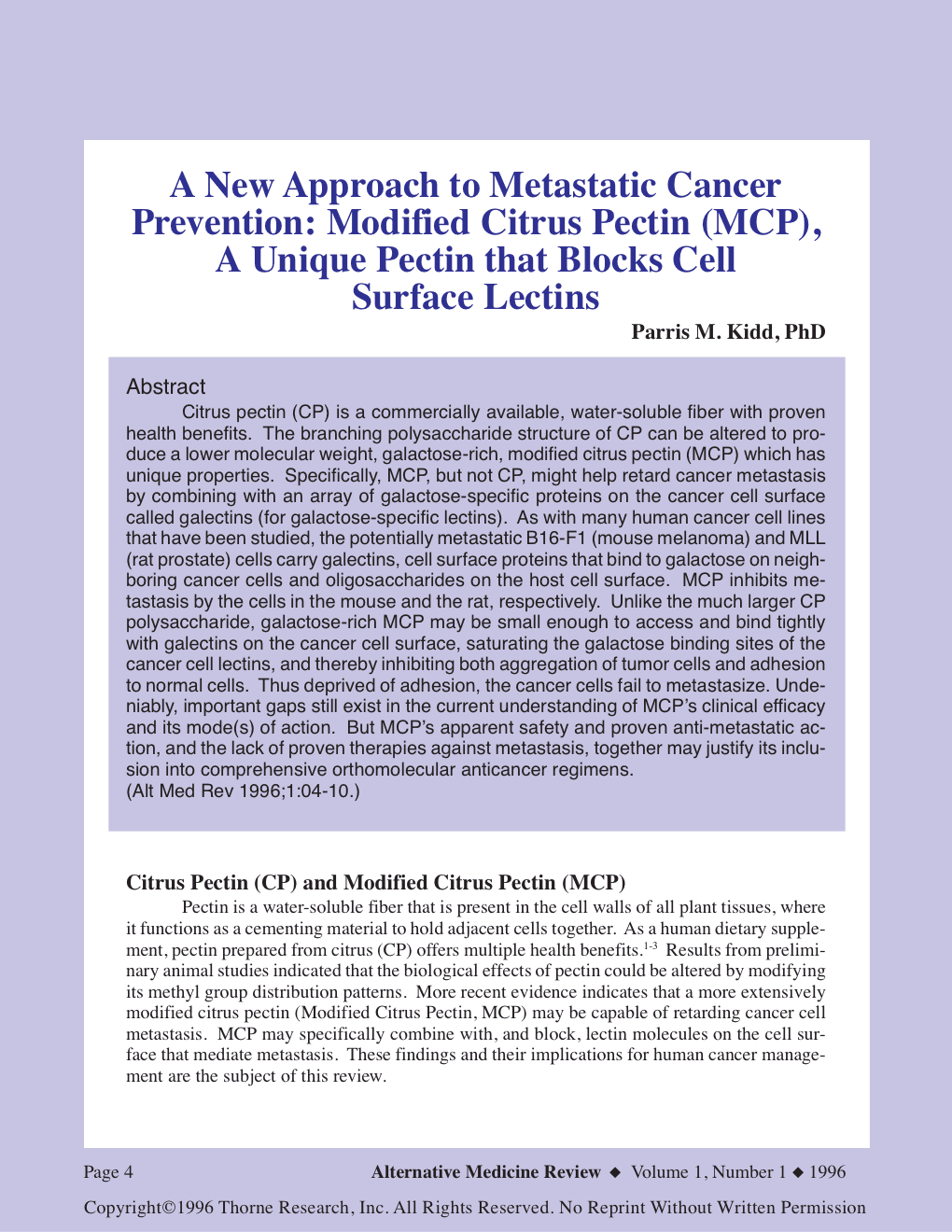Abstract
Citrus pectin (CP) is a commercially available, water-soluble fiber with proven health benefits. The branching polysaccharide structure of CP can be altered to produce a lower molecular weight, galactose-rich, modified citrus pectin (MCP) which has unique properties. Specifically, MCP, but not CP, might help retard cancer metastasis by combining with an array of galactose-specific proteins on the cancer cell surface called galectins (for galactose-specific lectins). As with many human cancer cell lines that have been studied, the potentially metastatic B16-F1 (mouse melanoma) and MLL (rat prostate) cells carry galectins, cell surface proteins that bind to galactose on neighboring cancer cells and oligosaccharides on the host cell surface. MCP inhibits metastasis by the cells in the mouse and the rat, respectively. Unlike the much larger CP polysaccharide, galactose-rich MCP may be small enough to access and bind tightly with galectins on the cancer cell surface, saturating the galactose binding sites of the cancer cell lectins, and thereby inhibiting both aggregation of tumor cells and adhesion to normal cells. Thus deprived of adhesion, the cancer cells fail to metastasize. Undeniably, important gaps still exist in the current understanding of MCP’s clinical efficacy and its mode(s) of action. But MCP’s apparent safety and proven anti-metastatic action, and the lack of proven therapies against metastasis, together may justify its inclusion into comprehensive orthomolecular anticancer regimens. (Alt Med Rev 1996;1:04-10.)

